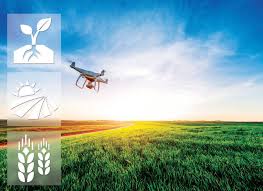OECD Report on Indian Agricultural Policies

- 14 Nov 2024
In News:
- In 2023, the Organisation for Economic Co-operation and Development (OECD) revealed that Indian farmers faced the highest implicit taxation globally, amounting to USD 120 billion.
- Implicit Taxation: This taxation arises from government policies like export bans, duties, and price controls, aimed at lowering food prices for consumers but reducing the income of farmers.
- Export Restrictions: Key commodities affected include rice, sugar, onions, and de-oiled rice bran.
Impact on Indian Farmers
- Market Price Support (MPS):
- Negative MPS: In 2023, Indian agricultural policies resulted in a negative MPS of USD 110 billion.
- Farmers received lower prices than international market rates due to export bans and trade restrictions, impacting their income.
- Budgetary Support: Despite government subsidies and the Minimum Support Price (MSP) worth USD 10 billion, negative MPS outweighed positive support, leading to an overall loss for farmers.
- Farmer’s Share in Global Negative Support:
- India’s share of global negative price support in 2023 was 62.5%, a significant increase from 61% in 2000-02.
Global Agricultural Policy Trends
- Global Support: Total support for agriculture across 54 countries averaged USD 842 billion annually (2021-2023). However, there was a decline in support in 2022-23 from the pandemic-era peak.
- Challenges:
- Geopolitical Tensions (e.g., Russia-Ukraine war) and climate change are exacerbating global agricultural production and trade.
- Export Restrictions in various countries are distorting international agricultural markets.
- Farmer Protests across countries reflect the economic and social struggles of the farming community.
- Sustainability Issues: Global agricultural productivity growth is slowing, posing challenges to feeding a growing population sustainably.
India's Agricultural Policies
- Export Bans and Restrictions: These policies are intended to control domestic prices but undermine farmers’ income by lowering market prices for key agricultural products.
- Minimum Support Price (MSP): MSP is meant to protect farmers, but is often set below international market rates, leading to a negative price effect.
- Regulatory Constraints: Policies like the Essential Commodities Act (1955) and APMC Act (2003), though aimed at ensuring food security, often lead to price suppression for farmers.
- Price Depressing Policies: India's agricultural policies result in lower farm-gate prices due to price controls, government-set procurement prices, and lack of market access.
Negative Market Price Support (MPS)
- Historical Trends:
- From 2014-2016, India’s Producer Support Estimate (PSE) was -6.2%, driven mainly by negative MPS (-13.1%).
- The PSE measures the annual value of transfers to farmers, both from consumers and the government.
- Inefficiencies:
- Infrastructure Gaps: Poor infrastructure and high transaction costs lower the prices farmers receive.
- Inefficient Resource Allocation: Short-term subsidies for inputs (fertilizers, irrigation) don’t address long-term agricultural challenges like climate change and market access.
Government Support Programs
- Subsidies and Schemes:
- National Mission on Sustainable Agriculture (NMSA)
- Paramparagat Krishi Vikas Yojana (PKVY) for organic farming.
- Rashtriya Krishi Vikas Yojana (RKVY) to promote agricultural development.
- Digital Agriculture Mission and Unified Farmer Service Platform (UFSP) for modernizing agricultural practices.
- Sustainability Efforts:
- The government has introduced initiatives like AgriStack and Mission Organic Value Chain Development in the North East to enhance sustainable agricultural practices and reduce the negative impacts on farmers.
Global Context and Recommendations
- Environmental Public Goods Payments (EPGP): Only 0.3% of total producer support is dedicated to environmental sustainability, despite the growing need for climate-resilient agriculture.
- Sustainable Agricultural Practices: The OECD advocates for governments to tie producer support to sustainable farming practices, including the use of metrics like Total Factor Productivity (TFP) and Agri-Environmental Indicators (AEIs).
- TFP measures agricultural efficiency, while AEIs assess the environmental impacts of farming.
OECD Overview
- OECD Function: Founded in 1961, the OECD is an international organization of 38 countries that promotes prosperity, equality, and well-being through economic reports, data, and policy analysis.
- India’s Role: India has been an OECD Key Partner since 2007, engaging with the OECD on various policy issues, though it is not a member.
